Nextorch K30 Penlight Review
The Nextorch K30 penlight uses an included USB-C charging 10880 cell and a single white emitter for great output and a low mode that lasts hours. Read on!
Official Specs and Features
Here’s a link to the Nextorch K30 penlight product page.
Versions
There’s just one version of the Nextorch K30 penlight but this body (including the cell used) is available in at least a couple of other lights.
Price
The Nextorch K30 penlight sells for $54.99 and is available now. That’s a referral link.
What’s Included
- Nextorch K30 penlight
- Nextorch 650mAh 10880 cell
- Charging cable
- Manual etc
Package and Manual
Build Quality and Disassembly
The design of this Nextorch K30 penlight is exactly like a couple of previously tested Nextorch models – the Dr.K32 Medical penlight and the Nextorch K33 UV penlight. Build quality is the same – very good!
Only the head comes off the Nextorch K30 penlight. The threads are unanodized and the positive contact is just a button.
Inside the (long) cell tube you can make out a spring for the negative connection.
Size and Comps
DIMENSIONS: 142mm (L) x 16mm (head) x 13.2mm (body)
WEIGHT: 35g (without battery)
If the flashlight will headstand, I’ll show it here. If the flashlight will tailstand, I’ll also show that here too!
Here’s the test light with the venerable Convoy S2+. The version below is a custom laser-engraved Convoy S2+ host by GadgetConnections.com. I did a full post on an engraved orange host right here! Or go straight to GadgetConnections.com to buy your Convoy S2+ now!
In the photo above, you may note that the SRM (standard reference material) flashlight for comparison has changed! I used a TorchLAB BOSS 35 for ages. Now what you can see as the 18350 SRM is the Hanko Machine Works Trident. While I have not reviewed or tested the Gunner Grip version seen here, I have tested a Hanko Machine Works Trident Total Tesseract in brass. I love the Trident, and it’s a striking contrast next to the inexpensive Convoy S2+, which also makes a great standard reference material.
Retention and Carry
The Nextorch K30 penlight has a “friendly” pocket clip. It’s actually surprisingly grippy, probably due to how much curve there is in the material when the light is pocketed.
Power and Runtime
The Nextorch K30 penlight is powered by a single 10880 cell, which is included. That’s a bit of a weird size, but since it’s included we can give it a pass. I am not sure if Nextorch has these cells available for purchase separately.
The cell goes into the light in the usual orientation – positive end (button) toward the head.
This is a 4.2V cell, too – so while it’s probably two 10440 cells end to end, they are not connected in series. Because of that, you should not just drop two 10440 cells in the light (individually), because that’s over 8V, and will almost certainly kill the light.
The manual also covers usage of the K30 with two AAA cells. Output is only minimally (and probably not even noticeably) lower. Runtime duration is about the same. That’s a huge win for this light!
Charging
The Nextorch K30 penlight itself does not have built-in charging, but the included 10880 battery does. There’s a USB-C charging port on the positive end.
Nextorch includes a USB to USB-C charging cable.
Here are a few charging cycles.
Modes and Currents
| Mode | Mode Claimed Output (lm) | Claimed Runtime | Measured Lumens | Tailcap Amps |
|---|---|---|---|---|
| High | 850 | 1h | 978 (0s) 836 (30s) |
2.73 |
| Medium | 160 | 2h15m | 162 (0s) 158 (30s) |
0.32 |
| Low | 20 | 12h | 20 | 0.03 |
Pulse Width Modulation
Low doesn’t use PWM but the higher two modes do.
Here you can see a “baseline” – a chart with almost no light hitting the sensor.
Then there’s the Ultrafire WF-602C flashlight, which has some of the worst PWM I’ve seen. It’s so bad that I used a post about it to explain PWM! Here are multiple timescales (10ms, 5ms, 2ms, 1ms, 0.5ms, 0.2ms) to make comparing this “worst” PWM light to the test light easier. That post also explains why I didn’t test the WF-602C at the usual 50us scale.
User Interface and Operation
The Nextorch K30 penlight uses a single switch. It’s a proud mechanical forward clicky.
I would go so far as to say that this switch cover is pen-like, too. That’s good since that’s the part that will be seen when the Nextorch K30 penlight is in a pocket.
Here’s a user interface table!
| State | Action | Result |
|---|---|---|
| Off | Click | Low |
| Off | Repeated Tap | Mode advance (L>M>H>Strobe) |
| On | Click | Off |
| On | Tap | No change |
LED and Beam
I can’t see anywhere that Nextorch has made a claim about the emitter used here. There’s a small reflector though, and the emitter is cool white.
LED Color Report (CRI and CCT)
The CCT ranges from low 6000K’s to around 6500K. It’s cool white. CRI is also low.
Beamshots
These beamshots always have the following settings: f8, ISO100, 0.3s shutter, and manual 5000K exposure. These photos are taken at floor level, and the beam hits the ceiling around 9 feet away.
Tint vs BLF-348 (KillzoneFlashlights.com 219b version) (affiliate link)
I keep the test flashlight on the left and the BLF-348 reference flashlight on the right. These photos are taken around 18 inches from the door.
I compare everything to the KillzoneFlashlights.com 219b BLF-348 because it’s inexpensive and has the best tint!
Summary and Conclusion
The Nextorch K30 penlight slots in nicely with the other penlights from this series. (That’s the Dr.K32 and K33 UV). The Nextorch K30 penlight is a more EDC-style light. It still has just three modes (a fourth lower mode would be great) and is cool white with a positive Duv (greenish beam). The build quality is very good, though, so check it out if you need a penlight!
The Big Table
| Nextorch K30 penlight | |
|---|---|
| Emitter: | Unstated emitter |
| Price in USD at publication time: | $49.99 |
| Cell: | 1×10880 |
| Runtime Graphs | |
| LVP? | On-Cell |
| Switch Type: | Mechanical |
| On-Board Charging? | Yes |
| Charge Port Type: | USB-C (on cell) |
| Charge Graph | |
| Power off Charge Port | – |
| Claimed Lumens (lm) | 850 |
| Measured Lumens (at 30s) | 836 (98.4% of claim)^ |
| Candela per Lumen | 4.3 |
| Claimed Throw (m) | 95 |
| Candela (Calculated) in cd (at 30s) | 136lux @ 5.141m = 3594cd |
| Throw (Calculated) (m) | 119.9 (126.2% of claim)^ |
| Claimed CCT | – |
| Measured CCT Range (K) | 6100-6500 Kelvin |
| Item provided for review by: | Nextorch |
| All my Nextorch reviews! | |
^ Measurement disclaimer: Testing flashlights is my hobby. I use hobbyist-level equipment for testing, including some I made myself. Try not to get buried in the details of manufacturer specifications versus measurements recorded here; A certain amount of difference (say, 10 or 15%) is perfectly reasonable.
What I like
- Great build quality
- Simple user interface
- Includes cell
- Can also run two AAA cells
- Fairly remarkable (initial) output!
What I don’t like
- Strobe in the main group
- High CCT
- Low CRI
Notes
- This content originally appeared at zeroair.org. Please visit there for the best experience!
- For flashlight-related patches, stickers, and gear, head over to PhotonPhreaks.com!
- Please use my Amazon.com referral link to help support zeroair.org!
- Please support me on Patreon! I deeply appreciate your support!
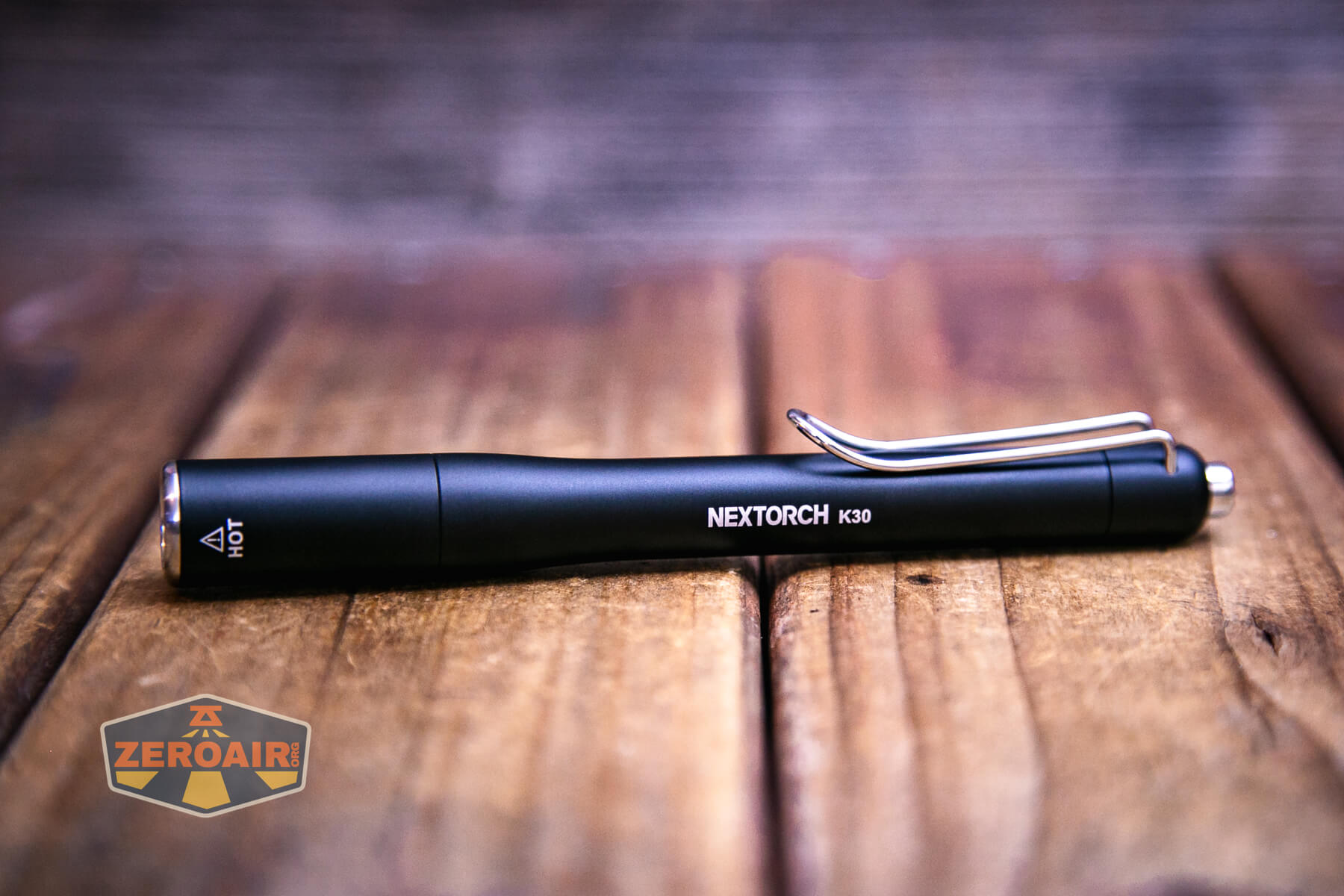






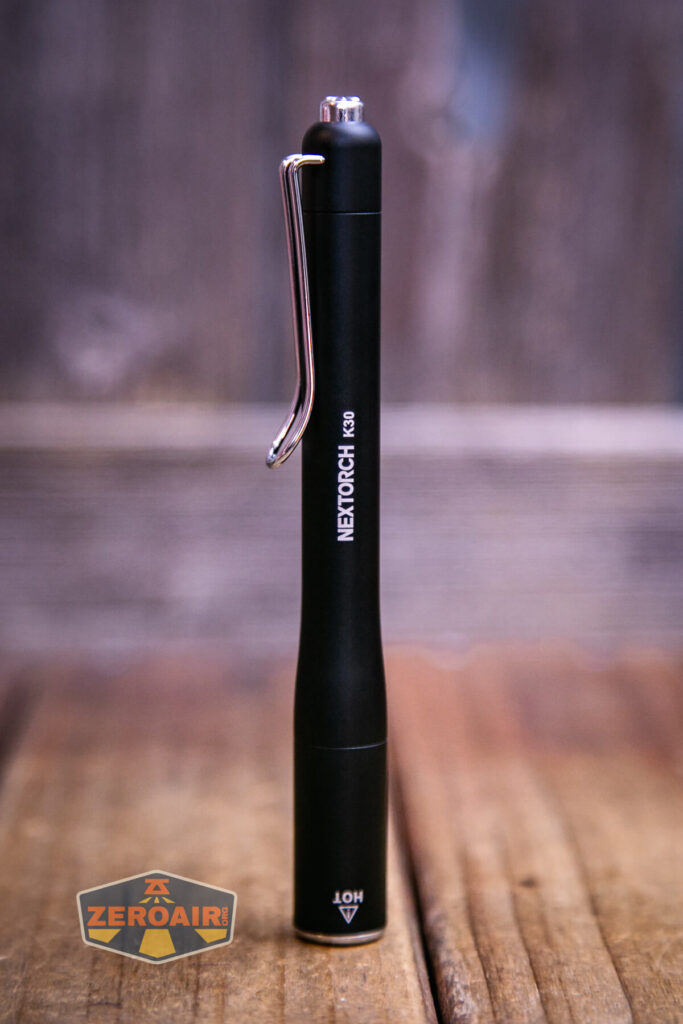




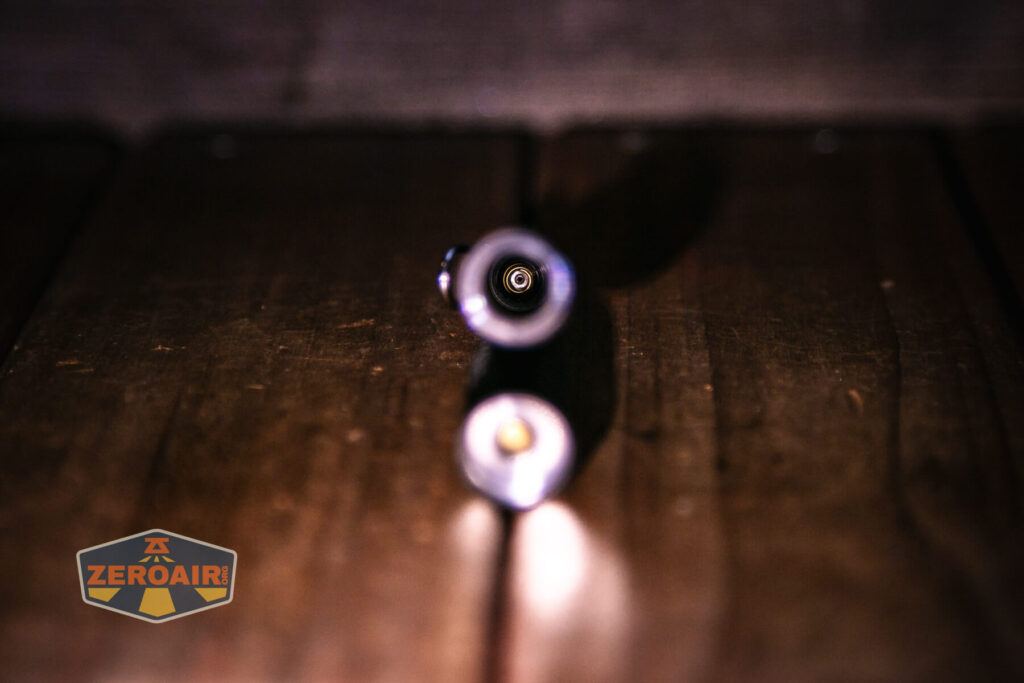
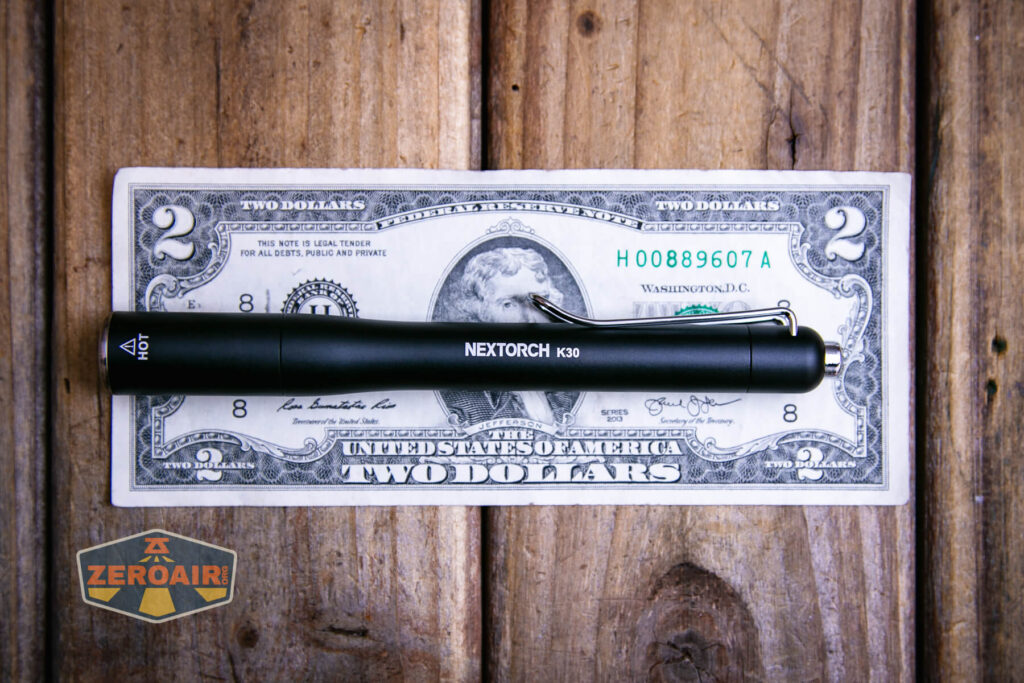

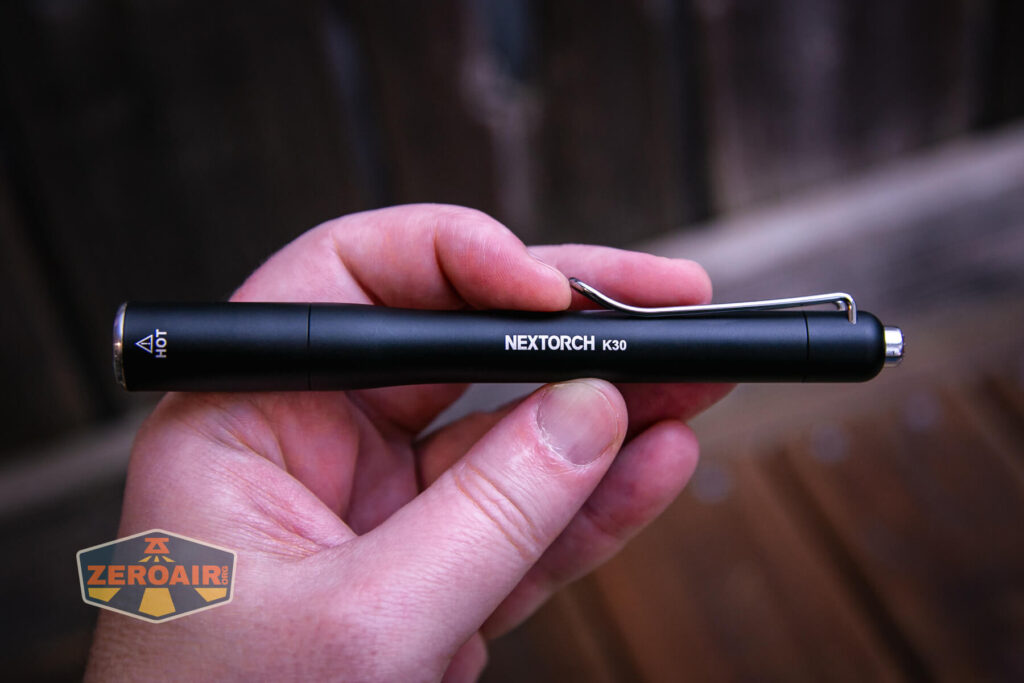
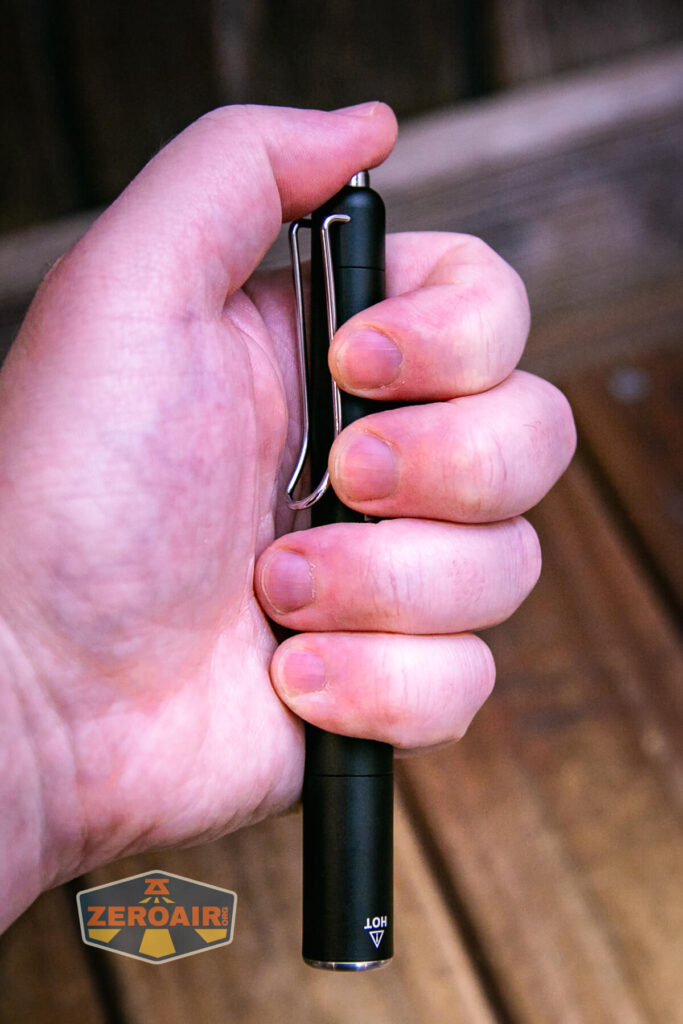

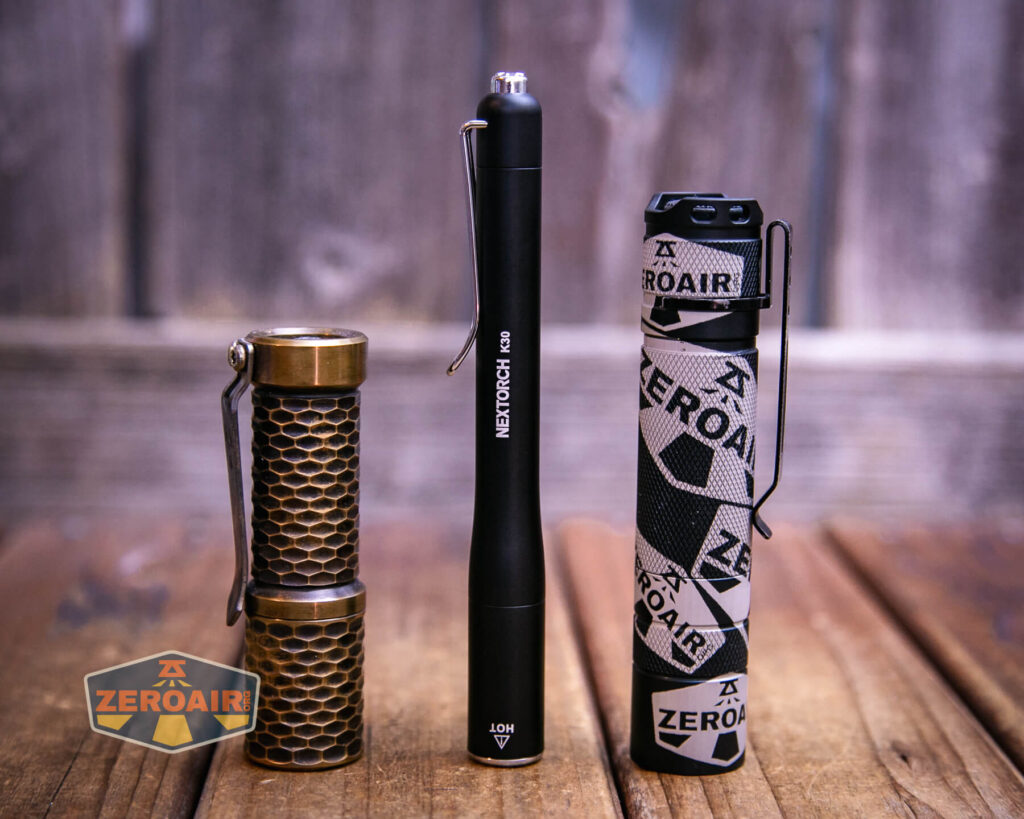

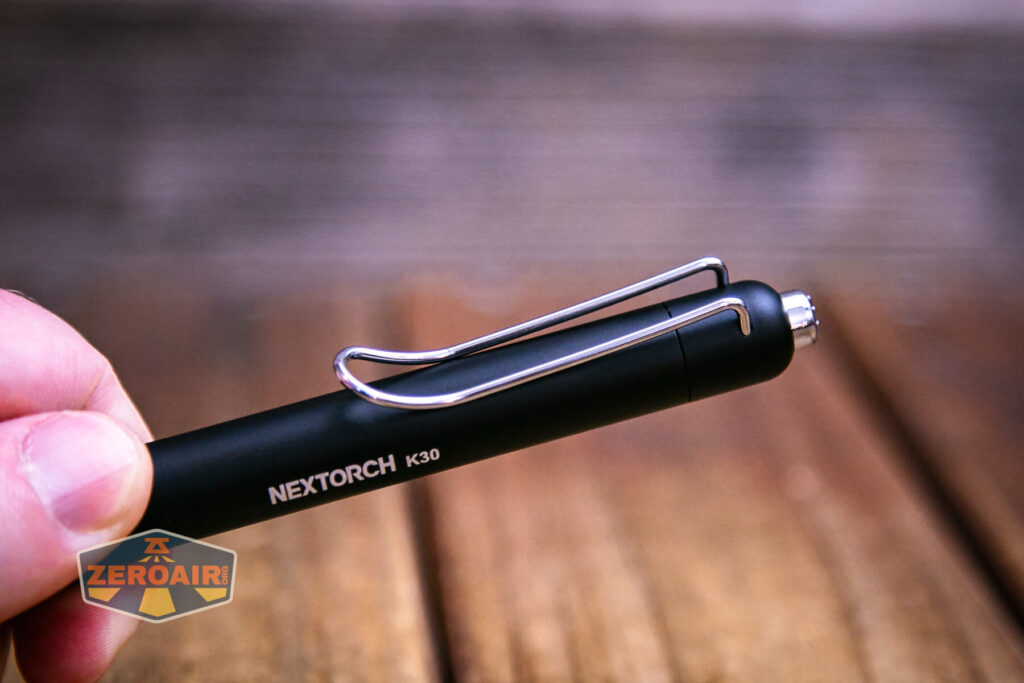
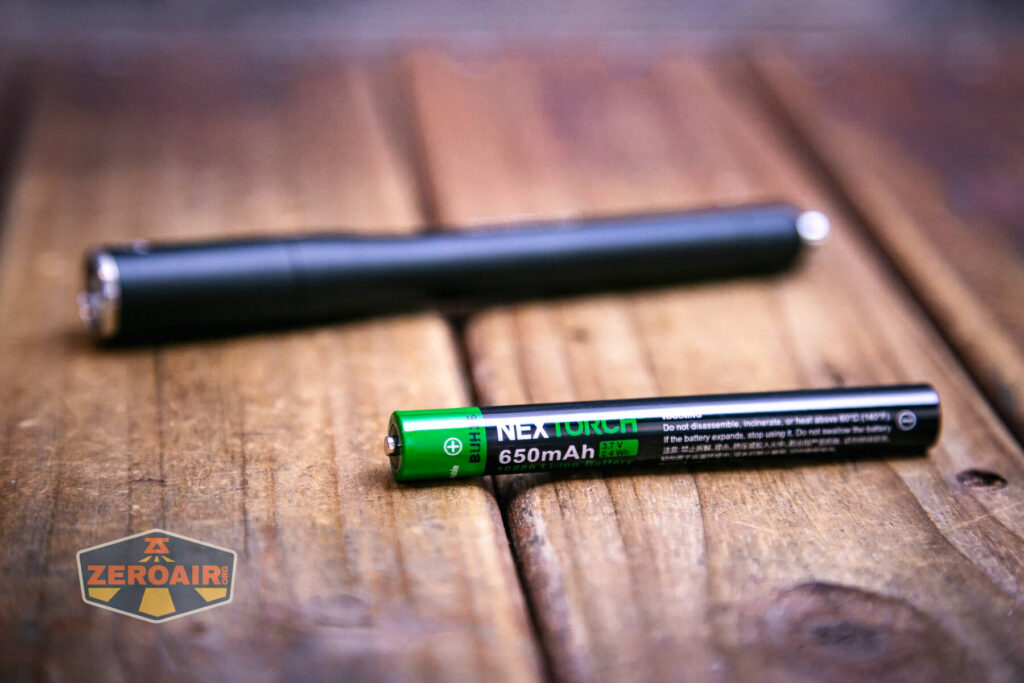
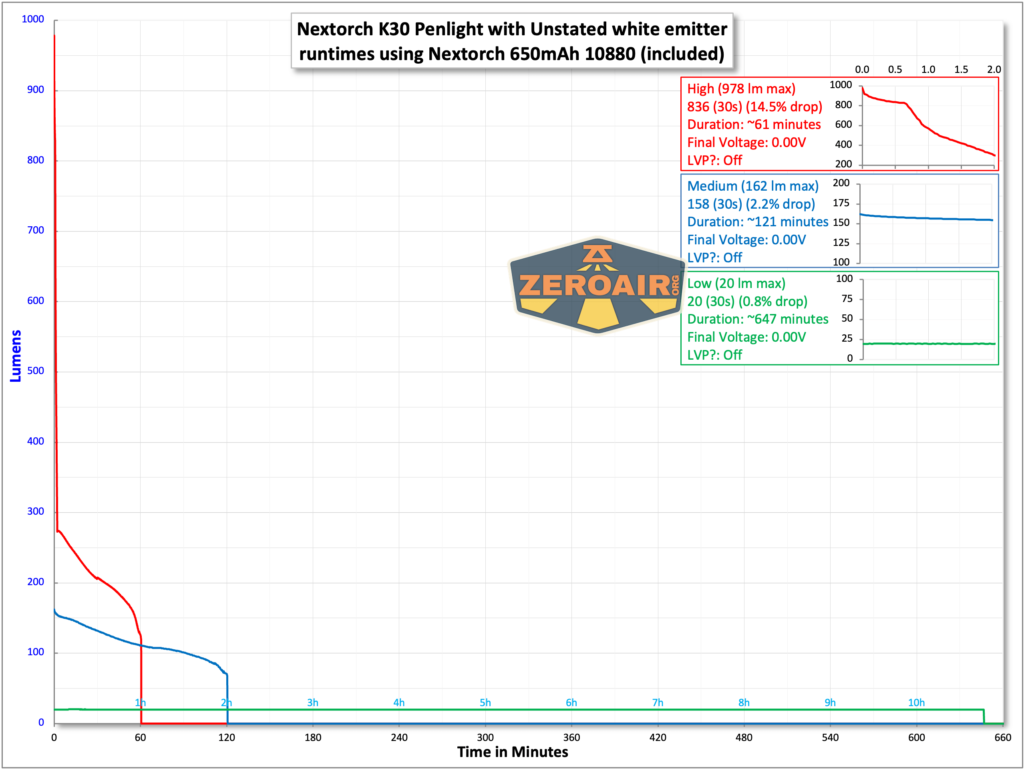


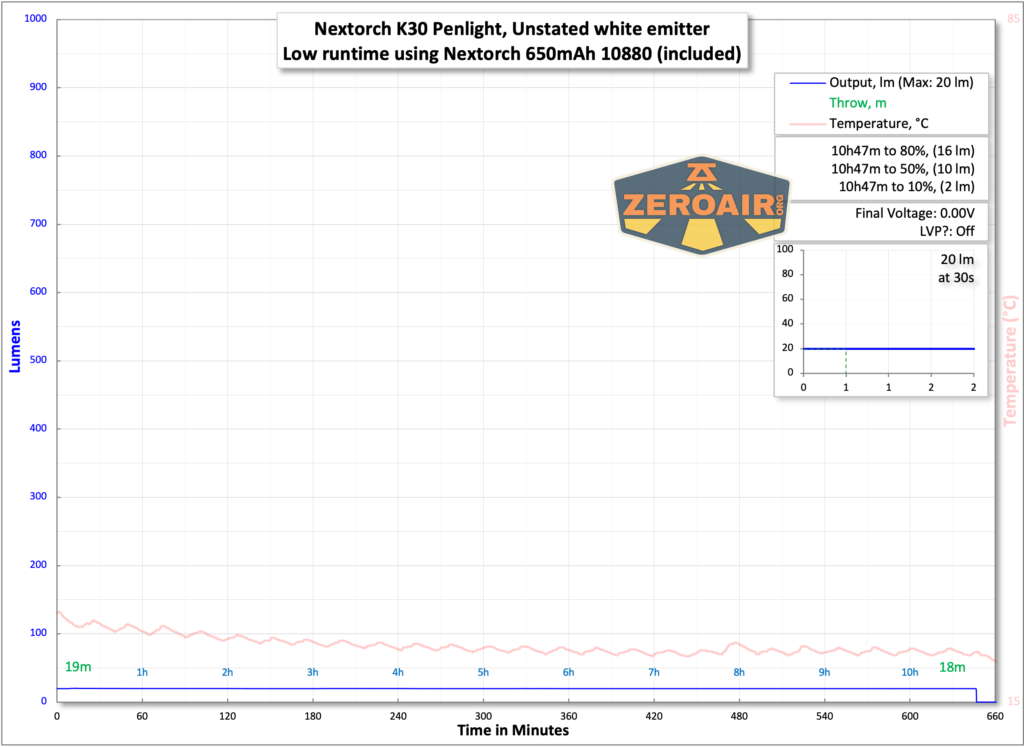
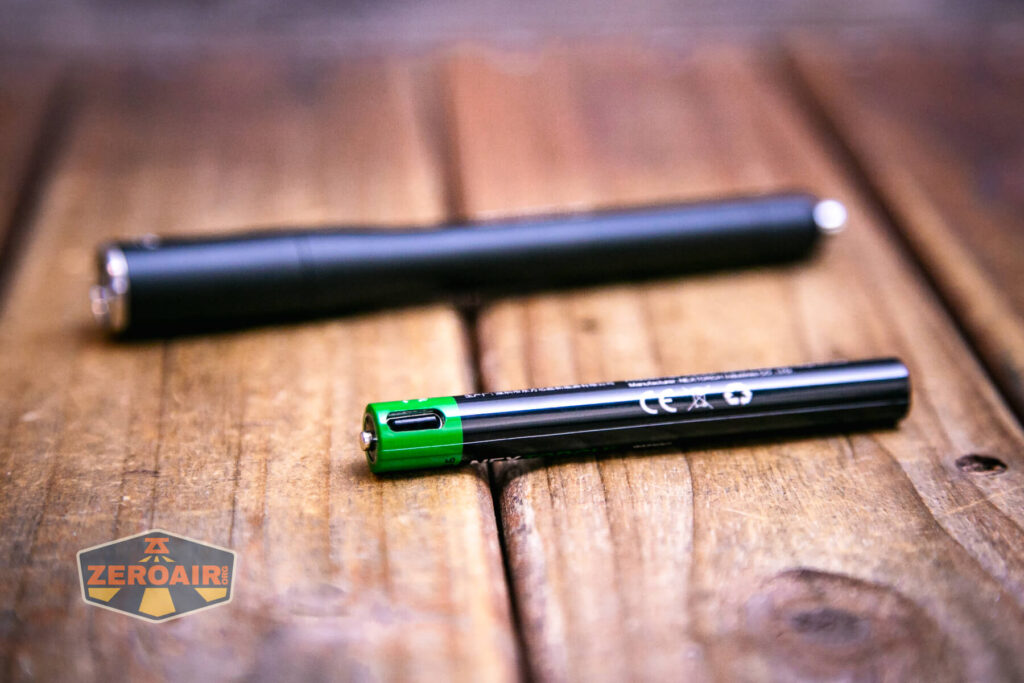

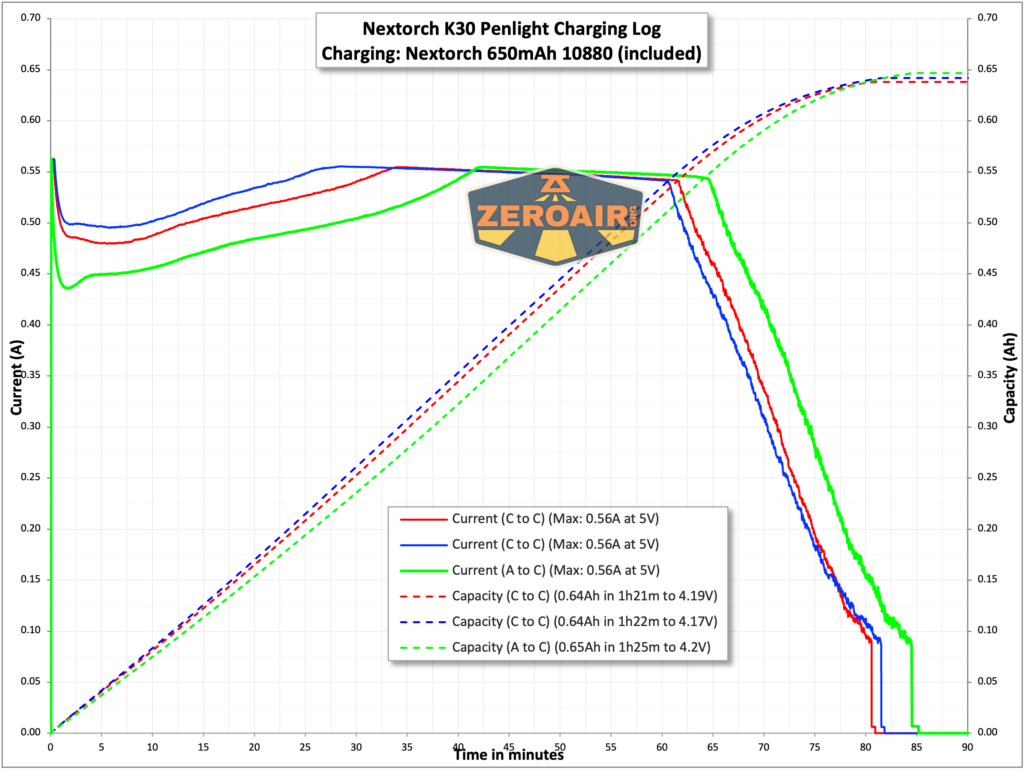

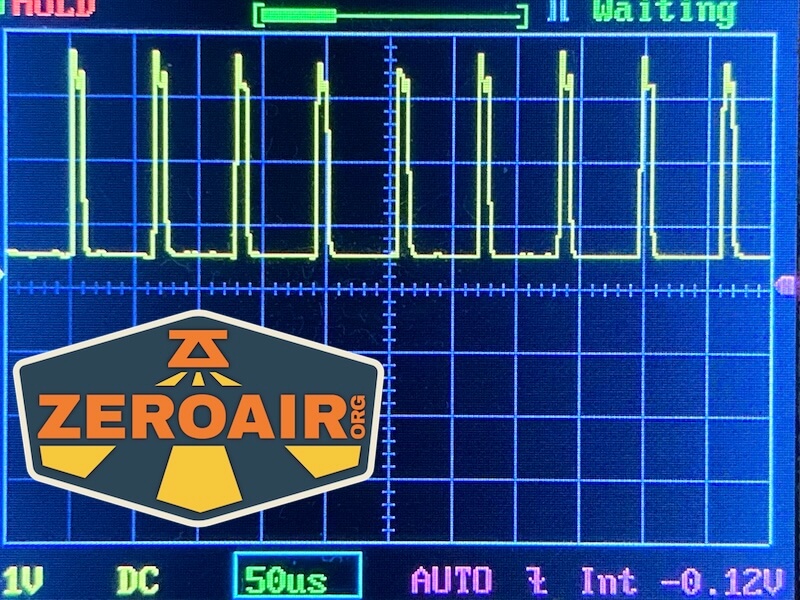




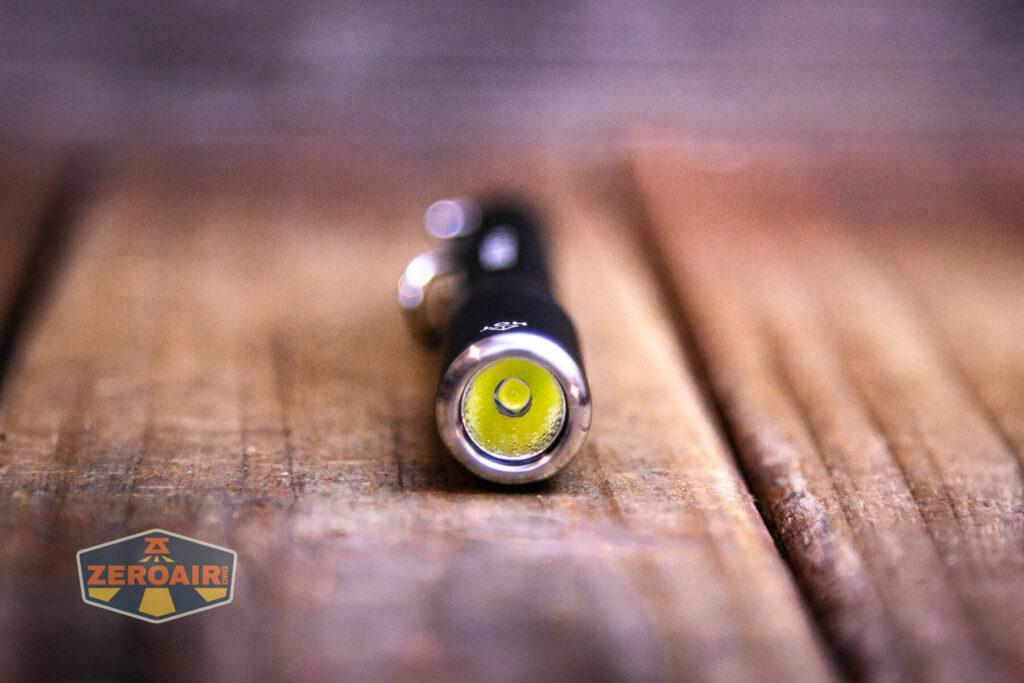
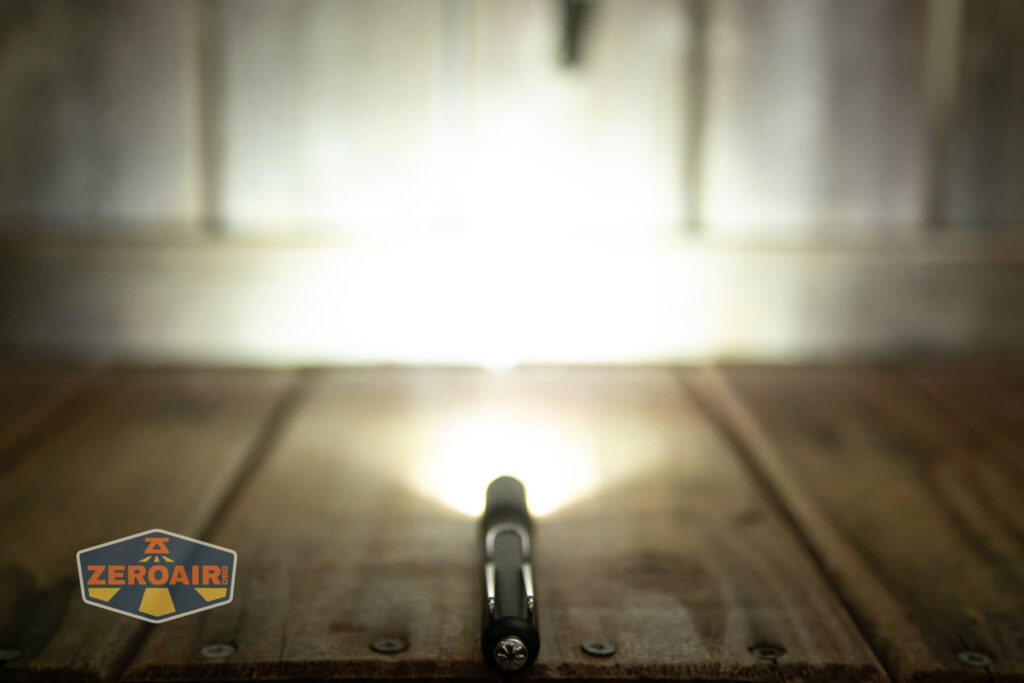
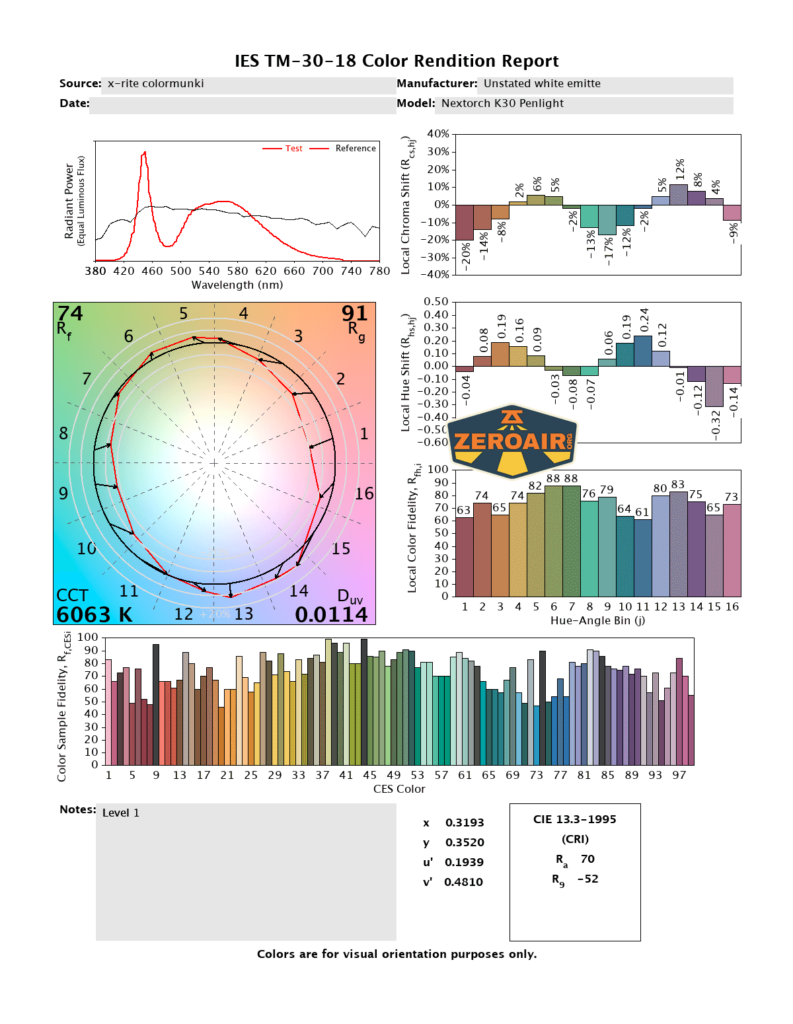
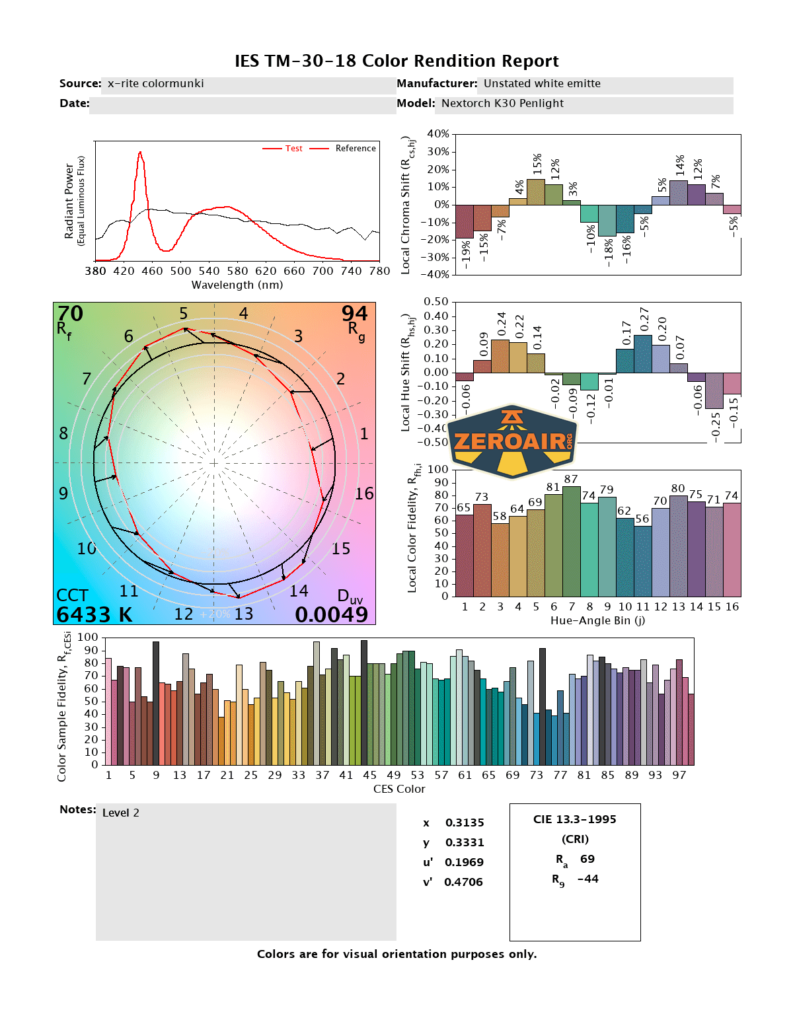
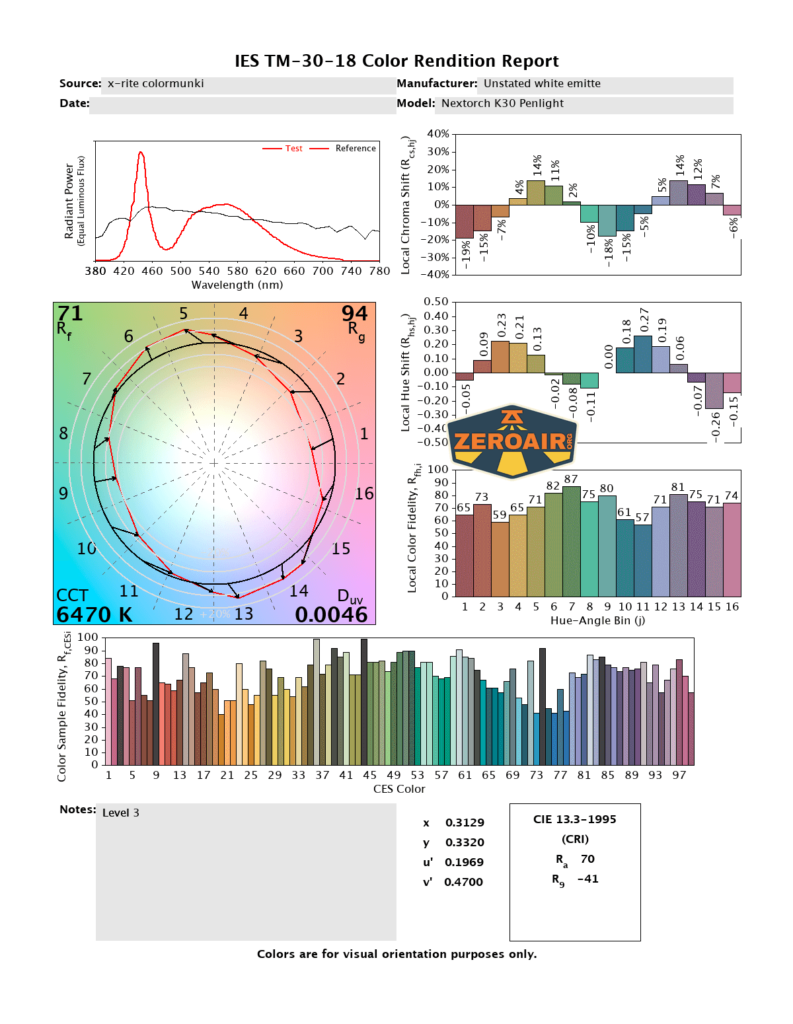

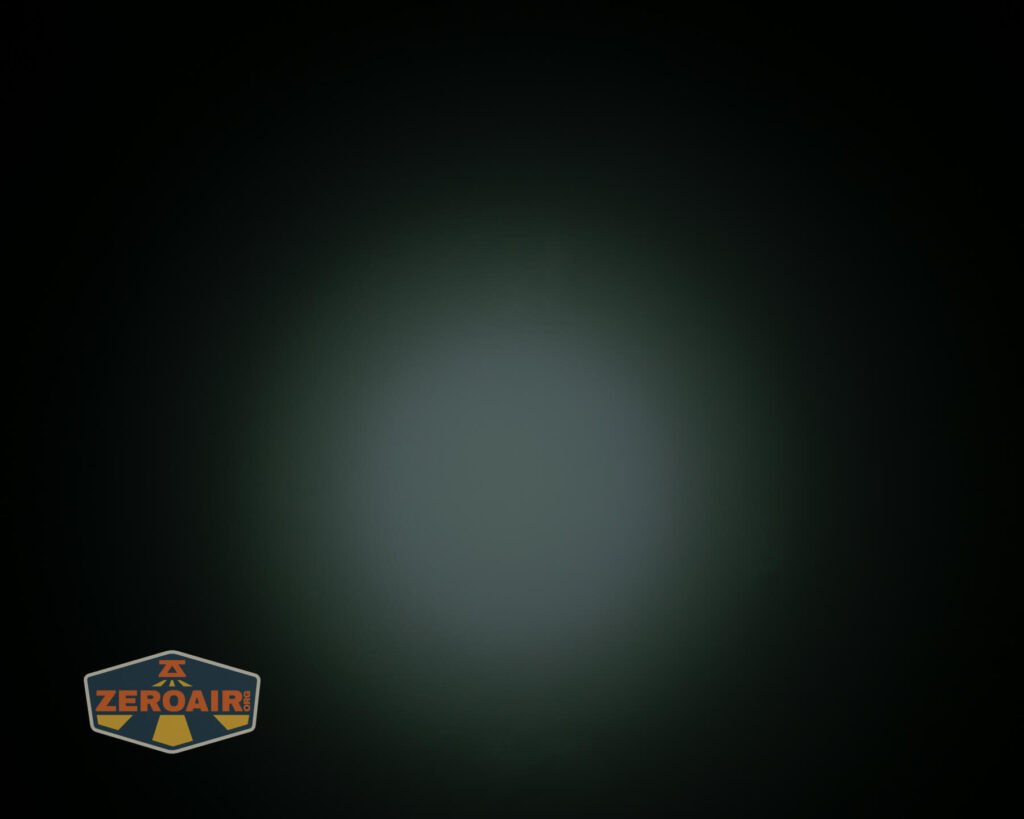
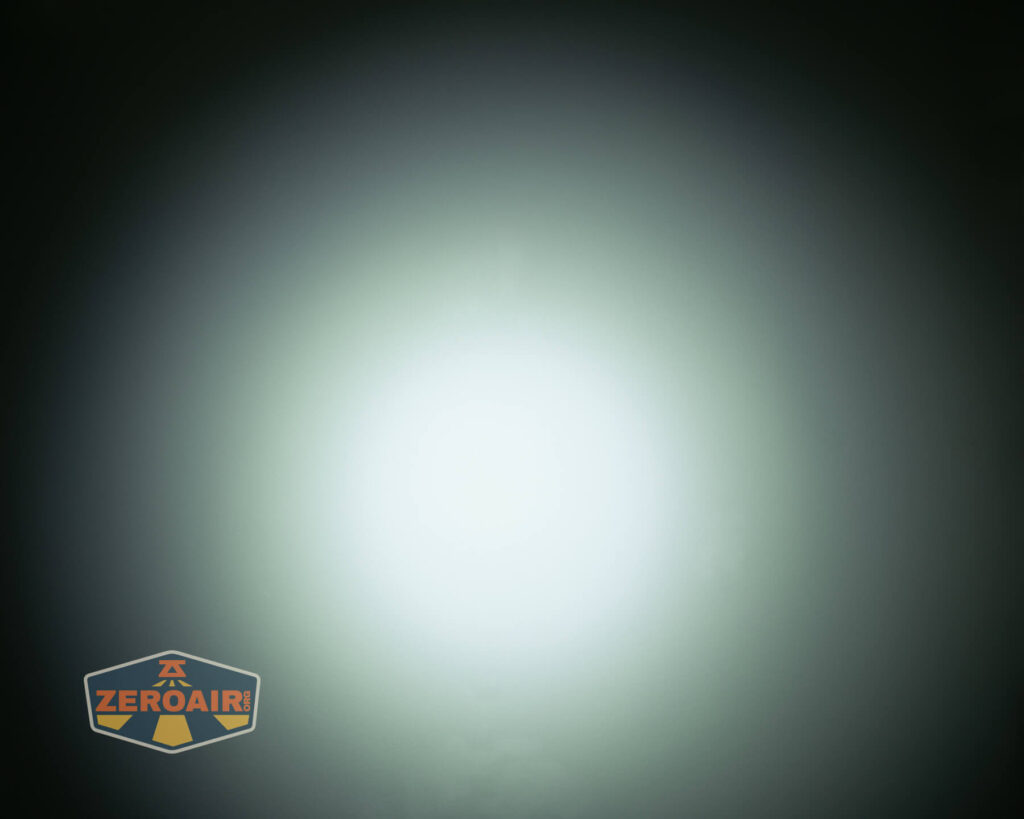
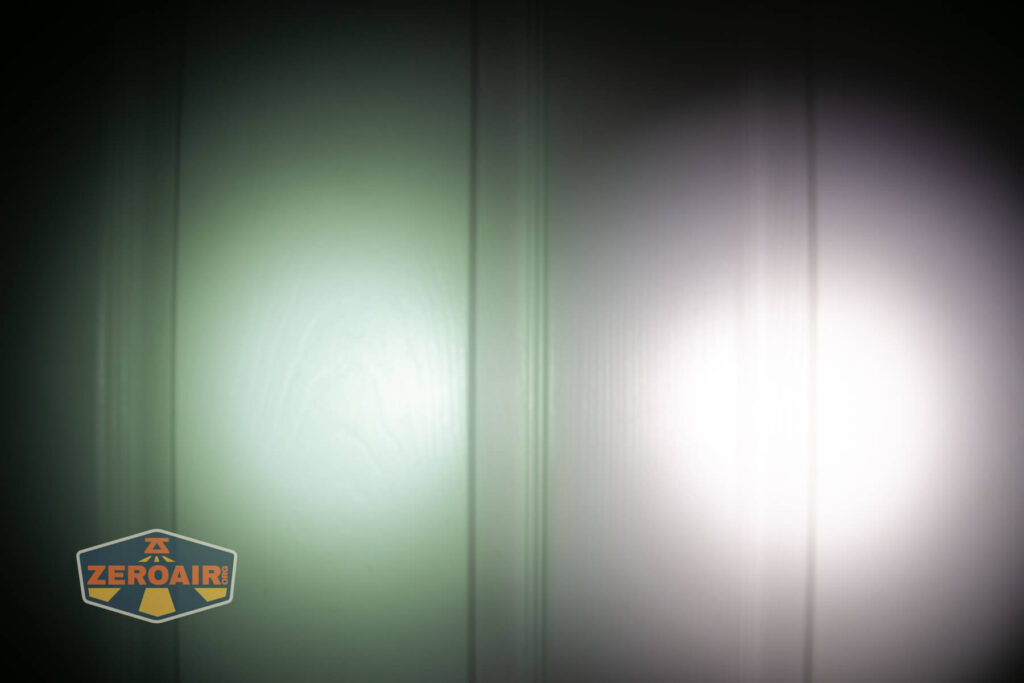
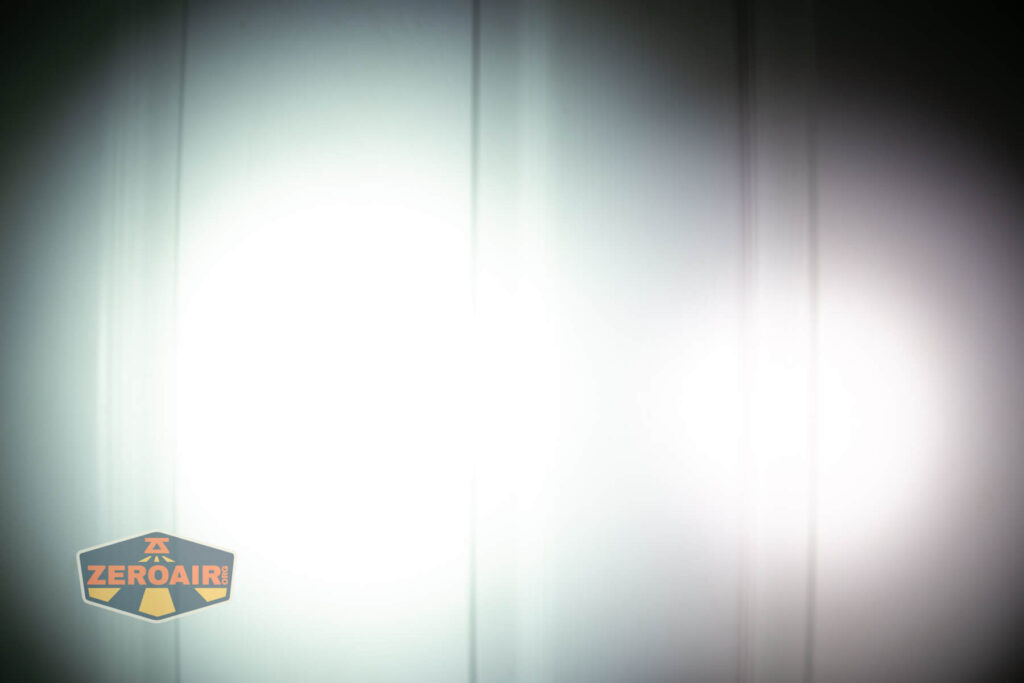
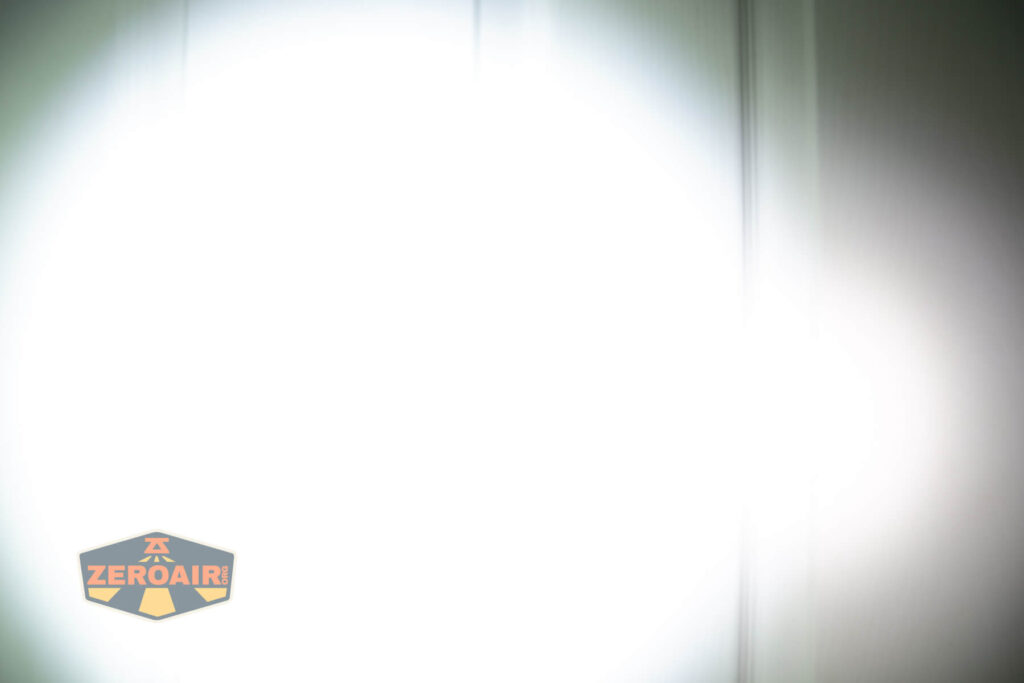
Your first graph is about the Cyansky Vanguard. At first I thought we had a paranormal light 😉
Thank you for letting me know! On my end it was cached as the right graph so I would have NEVER seen that! I got it fixed, though. (You also may have to refresh your cache to see the updated.)